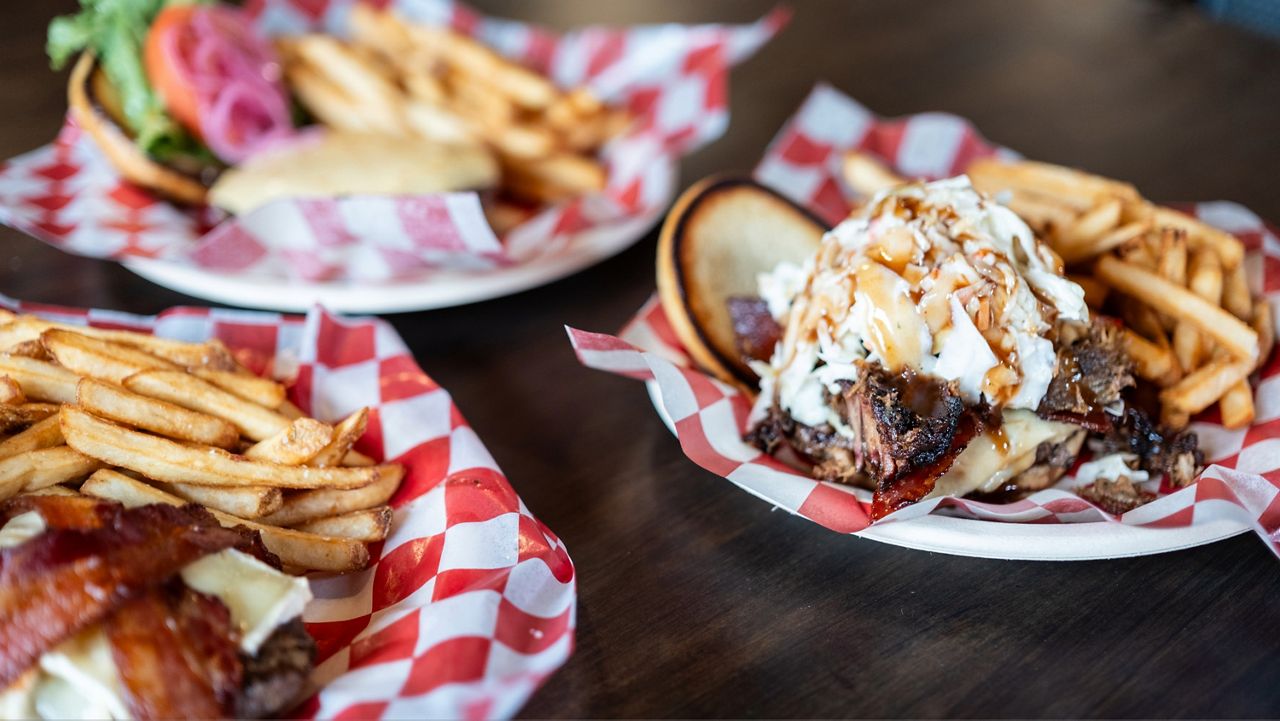Wagyu beef, a high-quality breed traditionally from Japan, is finding a home on the Central New York restaurant scene thanks in part to a Cazenovia farmer.
Lee Dowling, owner of Deer Hill Wagyu in Cazenovia, raises about 450 head of Wagyu cattle and is one of a handful of large producers in the Northeast and even fewer in Upstate.
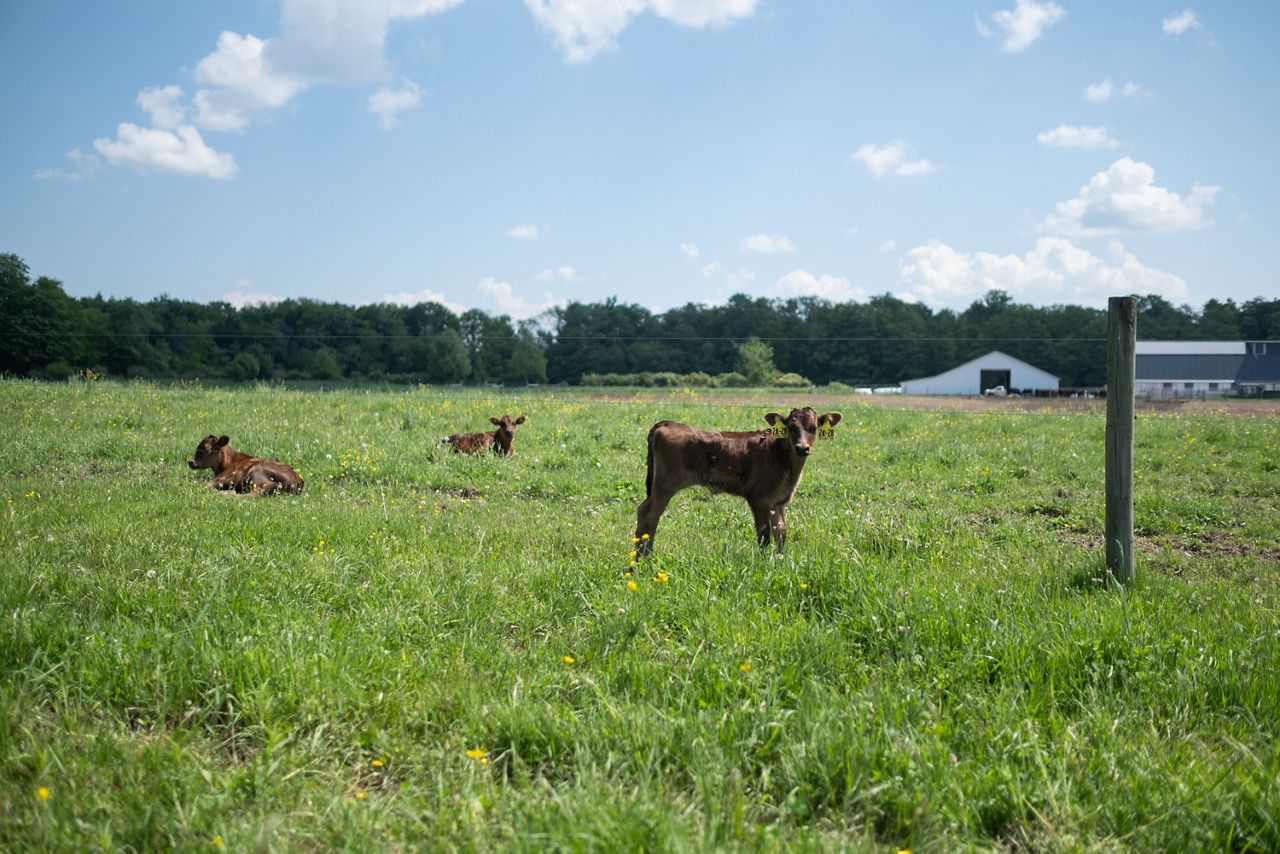
“What I realized when I was doing Angus [cattle] is that I wasn’t going to be able to be big enough to actually cover my expenses, which is a prerequisite, so I was thinking about how I could expand,” Dowling said.
After acquiring a couple of nearby farms with barns and working with his now herd manager Tod Avery, Dowling made the switch in 2018.
“We thought Wagyu over Angus because Wagyu is such a unique product. There are more farms doing it now, but at the time, we were the only one and we’re still the largest for quite a distance,” Dowling said.

Originating in Japan, Wagyu cattle are known for their highly marbled meat that comes from strictly managed genetics. In 1976, four bulls were brought to the U.S. and bred with other breeds of cattle. Then in 1993, farmers were able to import female Wagyu cattle that led to the first full-blood Wagyu born in the U.S, according to the American Wagyu Association.
In 1997, Japan banned the export of cattle to protect what it saw as a national treasure. The country has since loosened some restrictions on embryos and semen. The U.S. Department of Agriculture also closely monitors its standards for labeling Wagyu.
“All of our animals are fourth, fifth or sixth generation, or they have never been crossed with anything else which drives the high-quality meat, but the challenge with that is they take a little longer to grow,” Dowling said.
Another major difference the consumer might see between Wagyu beef and Angus beef is the price, but it’s more than just because the supply is far less.

It takes a Wagyu cow about 30 months to get to maturity whereas a traditional Angus cow takes only about 18 months. Another driving factor for the higher price of the product is their environment.
“Wagyu cattle are a little different than others because you have to keep them inside in the wintertime, you have to keep them out of the wind. A lot of other cattle, you can just leave them outside because they are a bit heartier,” Dowling said.
The genetic anomaly that gives Wagyu cattle their marbling is also the reason they need to stay out of the cold weather. Angus cattle have thicker ribbons of fat around the outside of their muscles whereas Wagyu cattle have more fat dispersed throughout the muscle, which doesn’t keep them as warm.
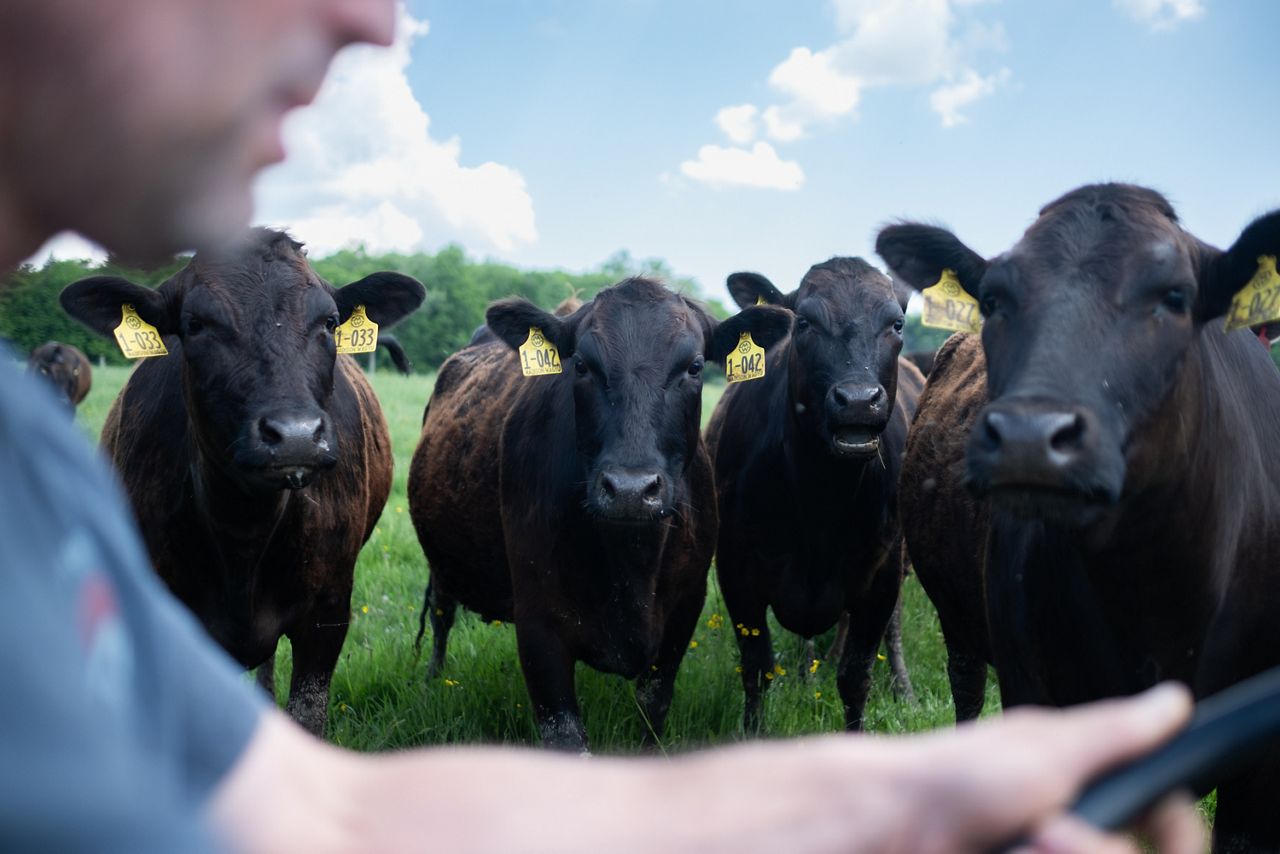
“Their feed intake goes very, very high in the wintertime because they have to generate heat because their bodies are working to make sure they maintain that temperature,” Dowling said.
All these factors lead to a higher cost at restaurants and grocery stores for Wagyu beef than Angus beef.
“Roughly speaking from a wholesale perspective, it’s two to three times on the burgers and it can be three to four, maybe even five on the higher quality steaks,” Dowling said.
While their product is available to the everyday consumer at their farm and through partnerships with Syracuse butcher shop Liehs and Steigerwald, their primary outlet is to restaurants. Beak and Skiff in Lafayette is now serving Deer Hill’s Wagyu burgers in the Tavern and at their summer concert series.
“Angus beef is good, but there are a lot of additives in Angus beef with a lot of different suppliers and brands, so really just having the cleanest burger possible, that’s why we chose Wagyu over the Angus,” said head chef Chris Fey.
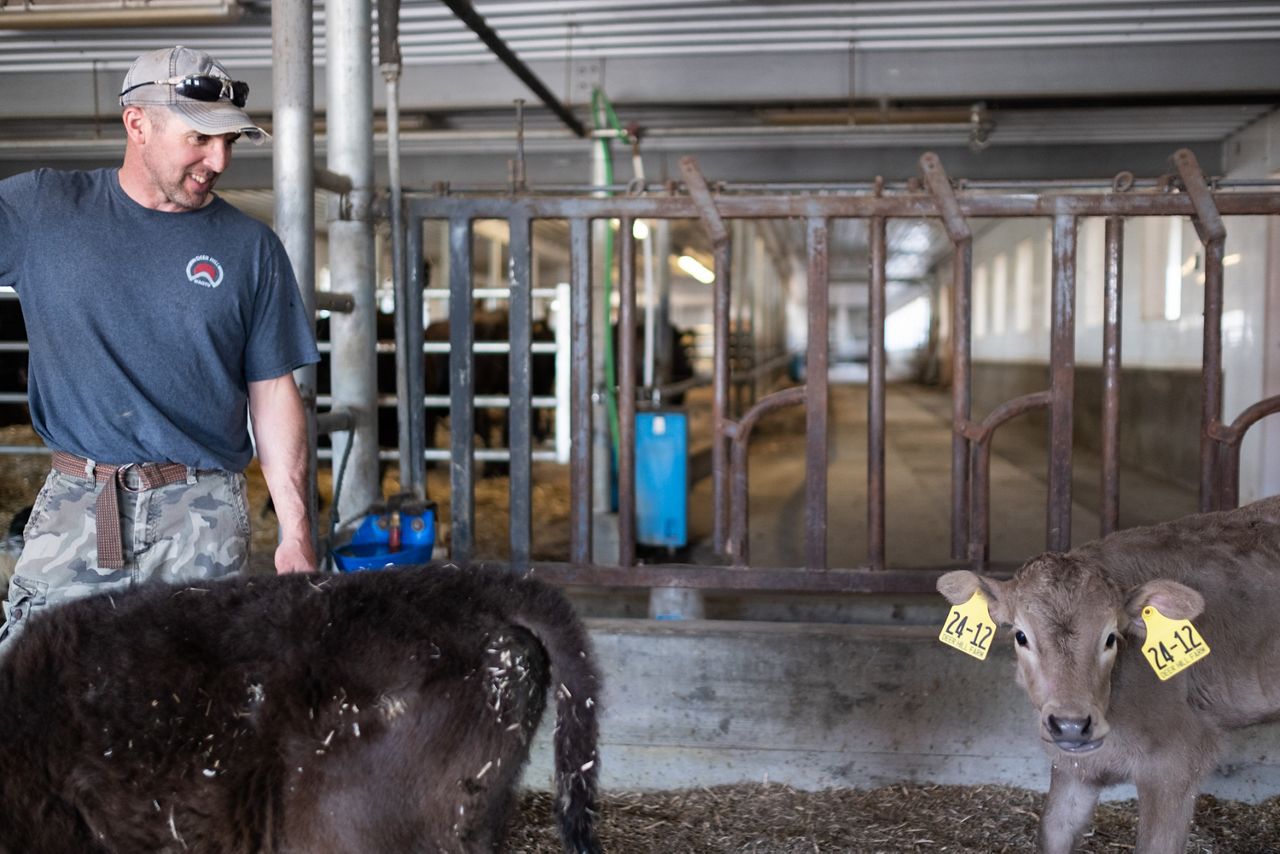
About 50% of the meat from a butchered cow goes to ground meat and burgers, and for some animals that are butchered past their prime, all their meat is ground for burgers, which helps the product be more affordable for restaurants.
“The price difference really isn’t too great; it comes down to about one dollar and change more per burger,” Fey said.
Beak and Skiff serves three different Wagyu burgers in the Tavern.
“We have our bourbon pit burger, which is an eight-ounce patty with melted steakhouse cheddar cheese, two pieces of apple cider glazed bacon, four or five ounces of pulled pork and coleslaw on top of that,” Fey said.
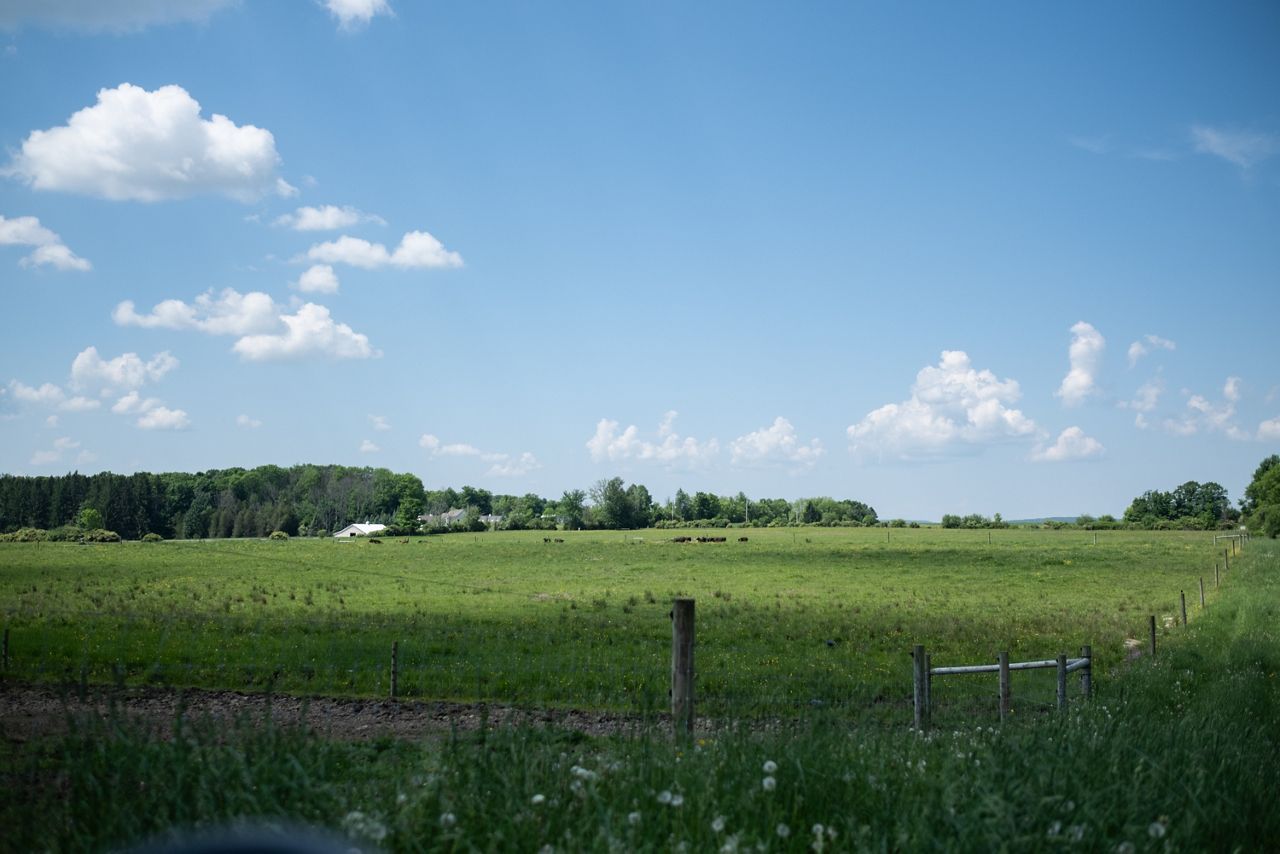
In addition to their traditional cheeseburger, they have a bacon brie Wagyu burger, which has melted brie and apple bacon on top. Deer Hill Wagyu steaks can be found in some local restaurants as well like Brae Loch Inn and Lincklaen House in Cazenovia, and Francesca’s Cucina in Syracuse.
Fey said the locality of the meat is another benefit as it is all grown and processed here in Central New York.
“The meat itself travels in about a 100-mile radius and then it comes right back here,” he said.



